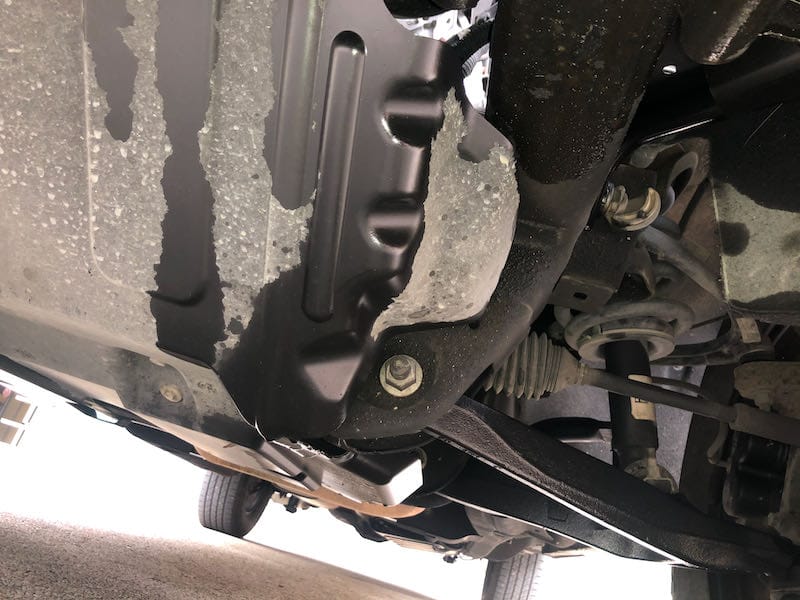The GM AC Condenser Issue is a Real Problem
The General Motors AC Condenser issue is a real problem that affects 2014-2017 Chevrolet, GMC, and Cadillac vehicles.

The General Motors AC Condenser issue is a real problem that affects Chevrolet, GMC, and Cadillac SUV’s and trucks. We have spent over $2,000 in repairs in under 95,000 miles on our 2016 half ton Chevy pickup truck with a 5.3L V8 engine.
I understand vehicles break down over time, but this issue appears to be a widespread manufacturers defect. If you talk to any Chevy dealer or local repair shop, they will know exactly what you’re talking about.
First Repair: No Cold AC at 50K Miles
Our first replacement of the AC condenser was around 50,000 miles. The truck started to blow hot air and would not cool down the cab. In Texas, that is never a good thing.
We were fortunate enough that this was not during the time when there was a nationwide shortage of AC condensers for GM vehicles. It seems as if the problem was so bad, no one could get replacement parts.
If the problems were so bad, wouldn’t it be right for GM to take care of these customers considering they now know the part they put on their vehicles fails prematurely?
Second Repair: Transmission Line Leaking at 94K Miles
Our second repair came at the beginning of 2021 when our truck had just over 94,000 miles. We started to see oil all over the ground on our driveway coming from the front part of the engine.

We first noticed this problem when oil was slowly leaking on the ground. It was hard to pinpoint because the oil was not coming from the oil filter or drain plug area at the bottom of the motor. So, our first response was to start checking fluids to see if we could determine which one was leaking.
As we checked fluids, everything seemed to be fine. The oil appeared to be coming from somewhere high up because it was all over the front skid plate and leaking down onto the front independent suspension.
The AC condenser on these Chevrolet vehicles has a transmission line running into the AC condenser. Yes, you heard me right. There is a transmission line running into the AC condenser.
Based on what the repair shop told us, they normally see the issue on the AC side of the condenser, not the transmission side.
When we went to pick our truck up the second time after getting it repaired, the mechanic who worked on the truck walked out to speak with us. He explained to us this is a major issue with GM vehicles, and he can’t understand why they won’t resolve the issue once and for all.
He has replaced six condensers in the last month and a half. Our transmission was 2 quarts low on oil when it arrived at their shop due to this leak.
Is There a Bracket That Fixes the Issue?
I was told by a family member that had the same issue there is a reinforcement bracket that goes on the AC side of the condenser that addresses the issue. The bracket is supposed to keep the condenser lines from shaking back and forth therefore reducing cracking in the welds.
I called several Chevrolet dealers and asked my repair shop, and they knew nothing about it. My repair shop also called another Chevrolet dealer they have a relationship with, and they knew nothing about it.
It seems as if General Motors has done a terrible job of communicating this problem to servicing dealers and repair shops. A simple email with an attached service bulletin would have been pretty simple to distribute.
Class Action Lawsuits
There have been some class action lawsuits filed in some states for this issue. If you do a quick search online, you will find many websites for Attorney Offices that discuss various class action lawsuits filed in different states.
Is General Motors Doing the Right Thing?
They don’t appear to be. It seems the right thing does not exist anymore. What most manufacturers do today is approach an issue first by doing what will most benefit their stockholders most, not their customers.
Based on conversations I had with two Chevrolet dealerships and our local repair shop, the issue will continue to happen and nothing has been done by General Motors to update the part. You can expect to make this repair on your 2014-2017 vehicle every 50,000 miles or so and it will cost you over $1,000 each time.
Additional Reading
Here are some links to additional websites that might help with this issue.



